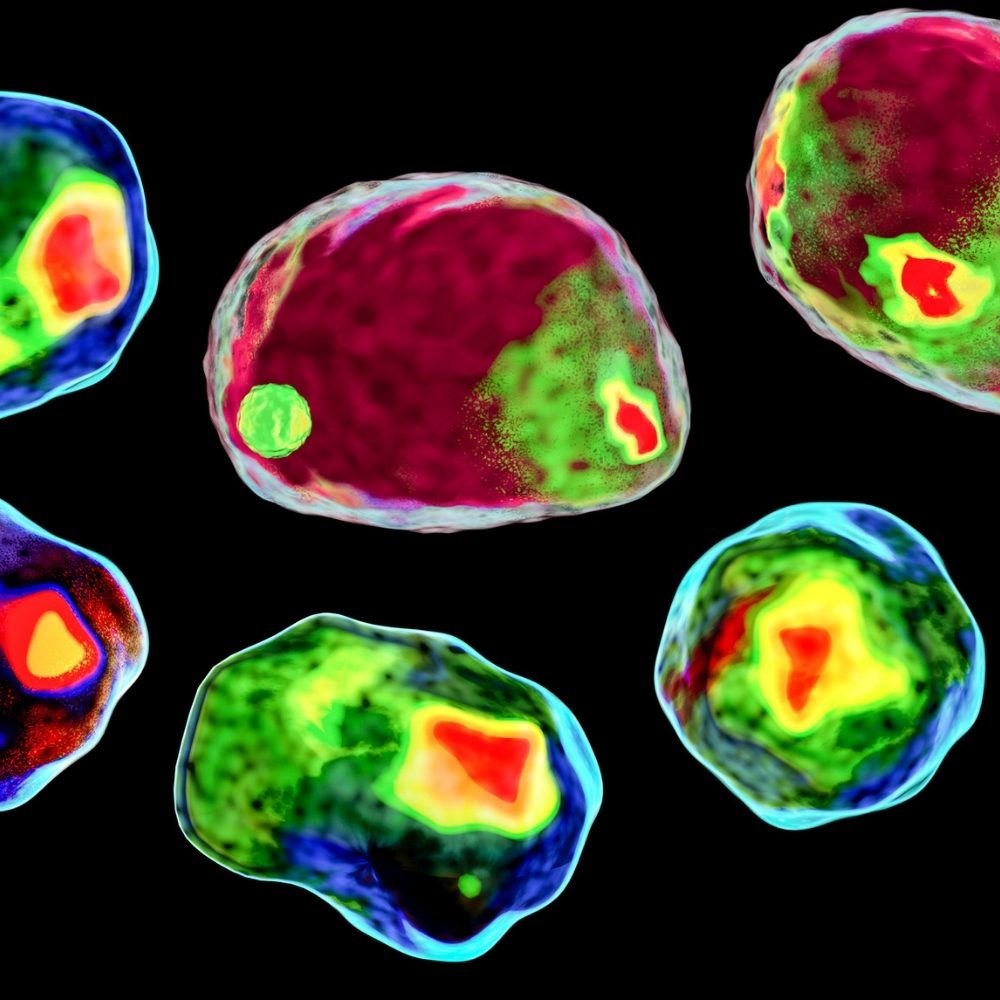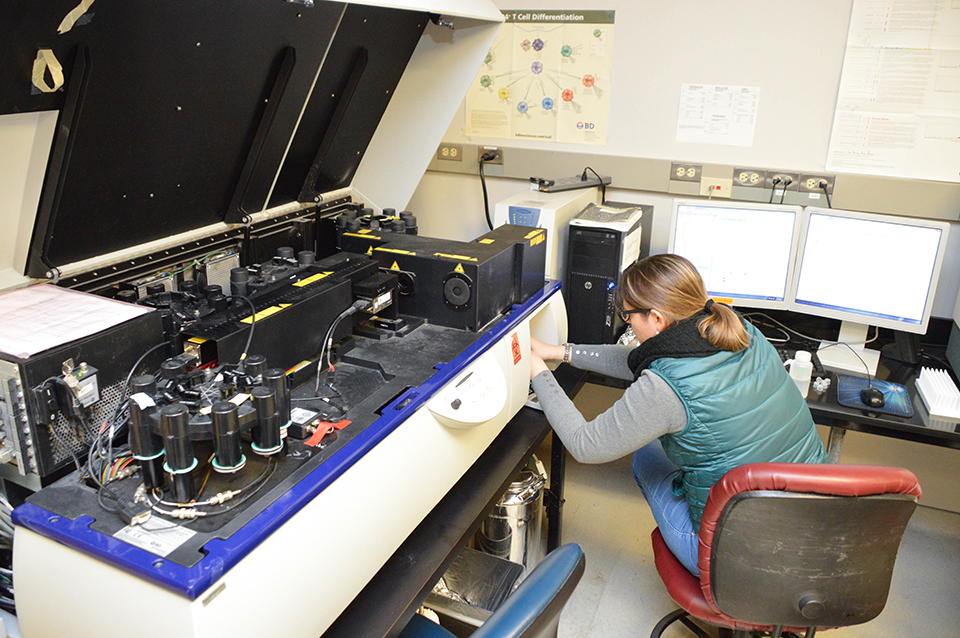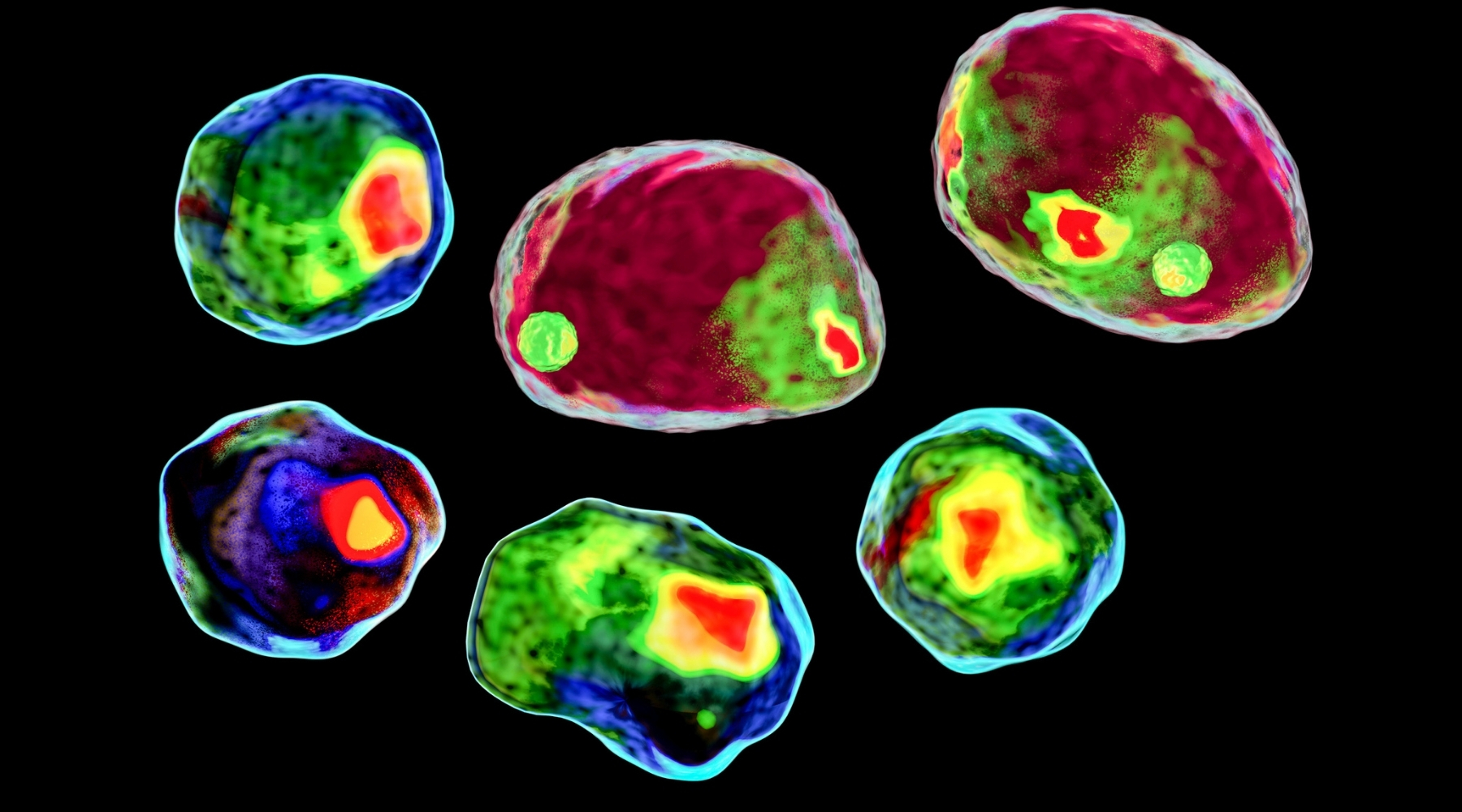
 The Flow Cytometry Core provides access to state-of-the art flow cytometry for all the participants in the Developmental Biology COBRE.
The Flow Cytometry Core provides access to state-of-the art flow cytometry for all the participants in the Developmental Biology COBRE.
This includes not only access to the physical instruments required, but also advice on the possibilities and limitations of the technology and help designing and interpreting experiments that use these approaches.
Use of flow cytometric approaches to analyze cellular metabolism changes is a fast-changing and relatively novel area, and the Core facility will expand its current expertise as necessary to provide our investigators with access to any new tools or technical approaches required to advance their research programs.
Facility Overview
- Our Flow Cytometry Core is housed in a custom-designed and carefully temperature-controlled, card-access-restricted, two-room suite in a renovated wing of OMRF.
- The special air conditioning is quiet and does not generate strong air currents around the instruments. All power, water and computer connections are installed in optimal positions.
- All of our instruments are well maintained and covered by service contracts from the manufacturers. OMRF covers the service contract expenses for the Flow Cytometry Core as part of their commitment to the long-term viability of this service.
- We have two sorters (Beckman-Coulter MoFlo XDP and Becton Dickinson FACSAria Illu) and four analyzers (LSRII, FACSCelesta, and FACSCalibur, all from Becton Dickinson, and a new five-laser spectral flow cytometer, the Cytek Aurora).
- Our 3-laser Beckman Coulter Moflo XDP is capable of detecting 13 parameters. It is routinely used for 2-way and 4-way sorts at speeds of up to 30,000 cells/second as well as single-cell deposition sorts.
- The 4-laser BD Biosciences FACSAria IIIu utilizes 488 nm, 633 nm, 561 nm and 407 nm air-cooled lasers with advanced optics to detect up to 18 independent signals.
- We recently added a new 5-laser (355 nm, 405 nm, 488 nm, 561 nm, and 640 nm) Cytek Aurora spectral flow cytometer to our facility. This machine is capable of detecting 34 fluorochromes simultaneously, and its UV laser will facilitate calcium flux measurements.
- The BD LSRII3 analyzer is equipped with 405 nm, 488 nm, 561 nm and 633 nm lasers. This digital instrument is a good companion to the FACSAria and is capable of detecting up to 19 parameters.
- Our 3-laser BD Celesta, purchased in 2016 is capable of detecting up to 16 parameters.
- Finally, our BD Biosciences FACSCalibur cytometer is capable of four-color fluorescence analysis.
The Facility also provides access to analysis workstations loaded with state-of-the-art software (FACSDiva and FlowJo, Cytek SpectroFlow), and it performs regular backups of the data.
Staff
Jose Alberola-Ila, M.D., Ph.D., serves as Core Director for this COBRE. He has more than 25 years of experience in flow cytometry and has previously served as the Flow Cytometry Core Director for another OMRF COBRE. He will be available to the Developmental Biology COBRE Project Leaders for consultation regarding experimental design, choice of fluorochromes, and data analysis.
There are two full-time technicians—each with more than 10 years of experience working in the OMRF Flow Cytometry Core—who run the cell sorters and maintain the instruments.
Jacob Bass has an undergraduate degree in physics, while Diana Hamilton, Ph.D. used advanced instrumentation in her dissertation studies in analytical chemistry. They attended the MoFlo training course at the Dako Cytomation training facility in Fort Collins, Colorado, and BD Operator Courses in San Jose, California.
These skilled technicians conduct all sorts for users, perform routine maintenance and database archiving on the instruments and provide guidance on staining, sorting, special applications and analysis. In addition, they train postdoctoral fellows, graduate students and technicians in operation of the FACSCalibur and LSR II. They each have 11-12 years of experience in the OMRF’s flow cytometry facility. Having two operators that are trained on multiple instruments insures that there is no down time due to illness or vacations. The technicians often agree to work late or on weekends to help scientists in times of particular need. The services of both technicians will be available to COBRE investigators.
Training
OMRF’s Flow Cytometry technicians have extensive experience in training postdoctoral fellows, graduate students and technicians in operation of the FACSCalibur and LSRII. Training sessions span several hours of hands-on operation of the cytometers and are scheduled on demand. Additional informal training and troubleshooting are easily available as all the instruments are in the same location and the operators are always present. Unsupervised usage of the analyzers is only authorized after training has been completed.
Maintenance
All instruments in the Flow Cytometry Core are covered by service contracts. Our operators are well-trained and capable of dealing with small repairs, maximizing the instrument availability. Calibration with fluorescent beads and cleaning of all instruments is regularly scheduled.
Access
Users gain access to the instruments through a web-based calendar. Sorters may be reserved two weeks in advance and analyzers can be reserved one month in advance.





